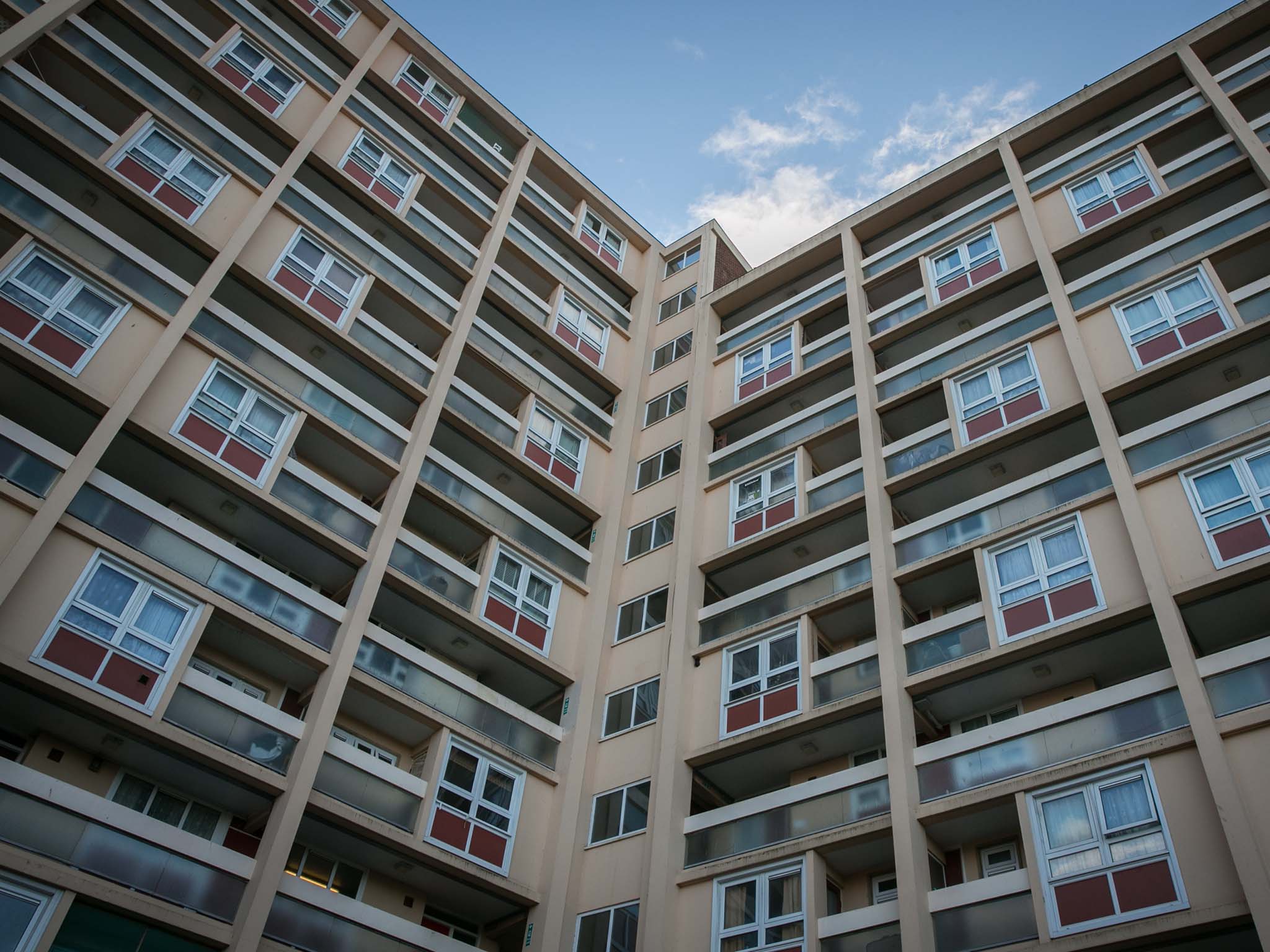Millennials don't need living rooms, says top architect
'For many young professionals who are out and about networking 24/7, a small, clean, private hotel room-sized central patch serves their needs perfectly well,' says Patrik Schumacher

Your support helps us to tell the story
From reproductive rights to climate change to Big Tech, The Independent is on the ground when the story is developing. Whether it's investigating the financials of Elon Musk's pro-Trump PAC or producing our latest documentary, 'The A Word', which shines a light on the American women fighting for reproductive rights, we know how important it is to parse out the facts from the messaging.
At such a critical moment in US history, we need reporters on the ground. Your donation allows us to keep sending journalists to speak to both sides of the story.
The Independent is trusted by Americans across the entire political spectrum. And unlike many other quality news outlets, we choose not to lock Americans out of our reporting and analysis with paywalls. We believe quality journalism should be available to everyone, paid for by those who can afford it.
Your support makes all the difference.A prominent architect has argued millennials do not need living rooms and their housing prospects would be greatly improved if size regulations were overhauled.
Patrik Schumacher, who took over as head of Zaha Hadid Architects after the legendary founder died in early 2016, said “hotel room-sized” studio flats were ideal for young people who led busy lives.
In a paper published by the Adam Smith Institute, he suggested size rules should be reviewed to increase the number of studio flats available to those on lower incomes.
While a 25-square-metre flat is the minimum in Japan, in the UK the minimum is 37 square metres for a one-bed.
"Those who are now making the hard choice between paying 80 per cent of their income on a central flat versus commuting from afar will, in the liberalised future, appreciate new options and perhaps choose to pay only 60 per cent for a smaller but more central flat,” Mr Schumacher said.
"For many young professionals who are out and about networking 24/7, a small, clean, private hotel room-sized central patch serves their needs perfectly well.”
The leading architect, who has previously proposed eradicating social housing and privatising streets, said the majority of central homes should be given to individuals "whose productive lives are most enhanced by being thus positioned".
He added: "I.e. those who operate at the centre of our network society, attending early morning meetings, after work networking events, weekend conferences, and professional lectures”.
The London-based architect argued the minimum size of 37 square metres on newbuild flats is “paternalistic” and prevents millennials from gaining a footing on the housing ladder.

Mr Schumacher, who worked on the London Aquatics Centre built for the Olympics, said: "Units half that size, built at an earlier time, are rare and thus at the moment overpriced, hotly desired commodities, for rent or for sale.
"Lifting this prohibition would allow a whole new (lower) income group, which is now excluded, to enter the market. This move would both boost overall unit numbers and affordability."
He suggested proposals for smaller homes quickly descends into hyperbolic debate which "becomes quickly emotional and rhetorical with phrases like 'rabbit hutches' and 'slums' standing in for arguments”.
Mr Schumacher argued planning restrictions across the board would push land prices down and help to make housing more affordable. He ultimately called for radical capitalist reform to tackle Britain’s housing crisis, arguing problems of fast-rising prices and unaffordability could not be solved by state-led ones.
“Tragically capitalism is not allowed to work its magic with what matters most to us, namely our dwellings and cities,” he said. “Urban development and housing provision have been unduly politicised and thereby paralysed.”
Polly Neate, CEO of housing charity Shelter, hit back at the architect's remarks. “Tiny homes don’t necessarily mean cheaper homes, and at Shelter we know that having a decent place to live is vital for people’s well-being. So compromising on space and quality isn’t going to do anyone any favours," she told The Independent.
“Homes in the UK are not expensive because they are too large, they are too expensive because our housing market is broken. When big developers realise they can squeeze, for example, 20 tiny homes on the same patch of land that once fit just ten then the price of land will rise to reflect this.
“The solution to the housing crisis is not to build ever smaller homes but to bring down the price of land and build the type of genuinely affordable homes that people actually want to live in.”
Mr Schumacher’s remarks prompted controversy on Twitter.
“How depressing. Just put us all into a pod at work with an IV drip overnight, that way we won't waste any more time or space for our elitist classes. I bet this architect would not dream of putting his son/daughter into a shoebox flat...,” said one tweet.
London’s house prices have skyrocketed from four times to over ten times the average annual wage over the past two decades. What’s more, the average renter has gone from spending one fifth of their income each year on rent to forking out over a third.
“Minimum standards on size, on height and where we can build and when, means there is a minimum price that people have to pay,” a spokesperson for the Adam Smith Institute told The Independent.
“Remember what is being said if you decide how you think others should live: in effect it is that you would plan others’ lives for them. If they wouldn’t live like that either, then they’ll refuse to, they won’t pay the price. Your minimum standard is actually a minimum cost you are forcing others to bear.
“Think of those businessmen that commute into town once a week and basically use the room to sleep in and nothing else, if they rent a flat at present they have to take one bigger than they need. That means more space is taken up than often they want or need, and that means higher rents and higher prices for everyone else.”
Sophie Jarvis, a policy adviser at the Adam Smith Institute, said: "If developers were allowed to build smaller houses, millennials could live in a compact, ergonomic flat in Zone 1 or 2, instead of a run-down, cold flat in at the end of the Central line or half-way to Hull."
This is not the first time Mr Schumacher has stoked controversy for his comments. He has argued his theoretical approach to architecture - “Parametricism” - should replace modernism and its successors to become the universal style of the 21st century. He has also said the government should no longer fund art and architecture schools.
Join our commenting forum
Join thought-provoking conversations, follow other Independent readers and see their replies
Comments